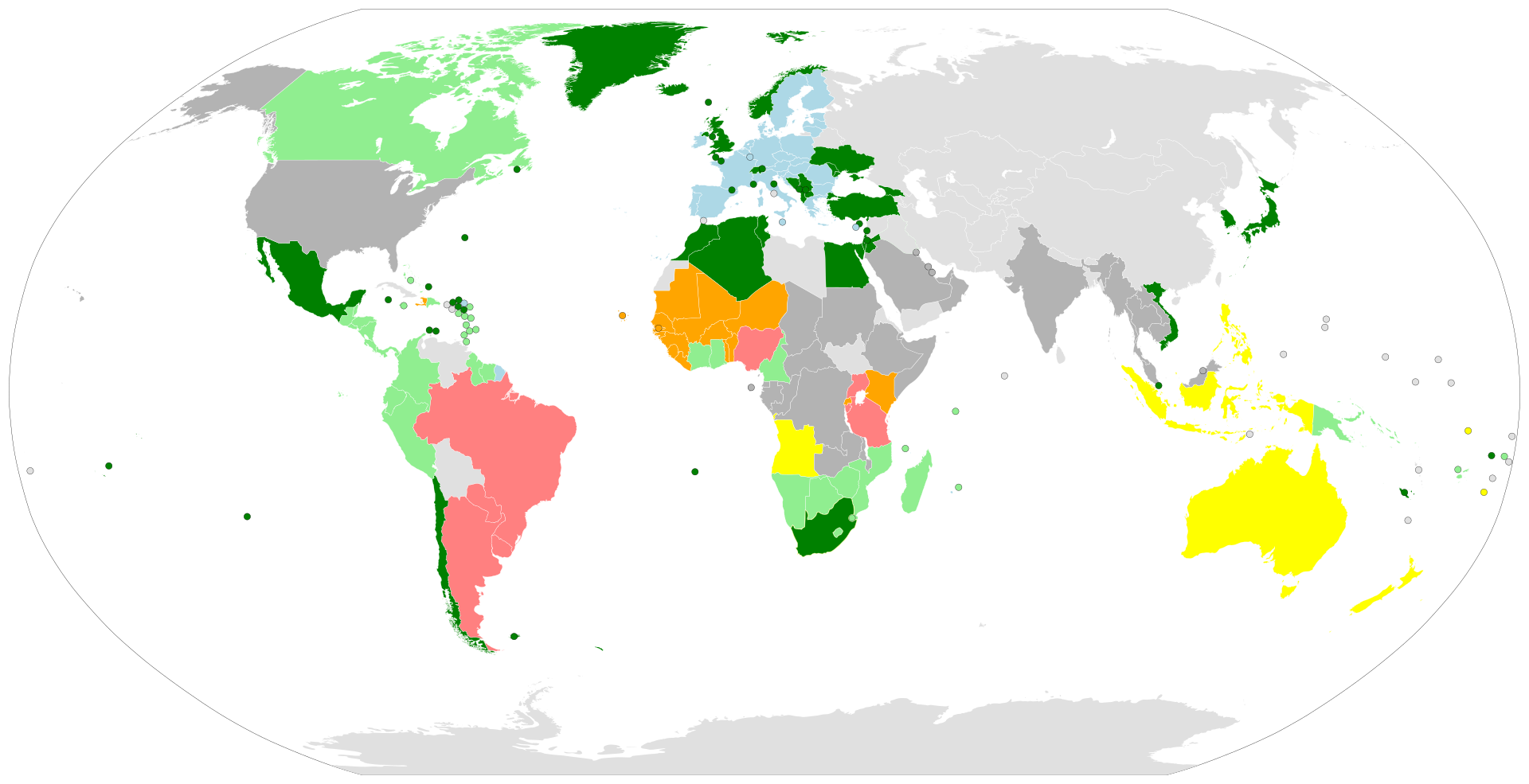Global Europe
Let's start with the example of trade. Arguably this is the part of the policy area where the EU is the strongest. An exclusive European competence, it is one of the rare wholly European policies where the full weight of Europe's political and economic might can be brought to bear on the international stage. And the results of this approach speak for themselves. The EU is one of the most open blocs in the world. Not only are its average tariffs among the lowest (including when only compared to developed states), Europe is a world leader in free trade deals. It has around 40 trade deals in force, while countries like South Korea or Japan barely reach 20. Switzerland manages around 30, though with some heavily one-sided deals like the Swiss-China FTA, while the United States only has 14 agreements. Added to this high quantity of deals, the EU is also able to win higher quality deals than individual Member States would be able to on their own, using its economic power and the pull of the combined European market to entice potential partners to make concessions.
[Source]
However, even relatively low barriers to trade can be tough for the poorest countries in the world, especially in the realm of agriculture where average tariffs are much higher than for other goods. This is why the EU has a special set of tariff preferences in place for just these countries. The most progressive of these policies is the Everything But Arms scheme, offering tariff- and quota-free access to the EU market in all areas apart from weapons to the world's 48 least-developed countries.
In the areas of security and defence too, Europe is taking a leading role in the world. Likely this is where the EU still has the most room to develop, as national governments have been fairly unwilling to effectively empower the EU in most matters relating to foreign policy. Yet even within these narrow confines, Europe is already undertaking a variety of civilian and military roles beyond its borders, mostly focused on peacekeeping (but also extending to policing roles in countries where the state lacks the resources to fulfil this public function on its own) in difficult areas in Africa and the Middle East. Likely the most famous of these missions has been the European Union Naval Force (EUNAVFOR) ATALANTA mission. Initially launched in cooperation with NATO, and working alongside other countries, this European force has been helping to fight against piracy around the coast of Somalia for the past decade. In this time, vessels from 12 different EU states have been operational at various moments, using Europe's military power to effectively restore some semblance of order to a highly unstable part of the world. And until recently, the operation had been commanded by UK officers, a role that has had to be transferred to Spain as a result of the Brexit decision.
[Source]
Finally, Europe is a global exporter of high standards, spreading its socio-economic model around the world. The most obvious example of this comes in the realm of data privacy. With the GDPR, Europe has been pioneering in developing a model of data privacy that empowers ordinary citizens over both corporations and the state. The importance of Europe to many online companies has forced these giant multinationals to sign up the new rules of the game, sometimes implementing the rules, in whole or in part, at the global level for sheer simplicity and to avoid the costs of adapting to multiple different regulatory models. These rules are also being exported directly to other countries, obliging them to match Europe's high standards if they want to enjoy equivalence in areas like data sharing (thus allowing for private companies to share data freely between the respective jurisdictions). But it's not only data. Chemicals regulation and environmental protections are two other big policy areas where EU standards are being pursued across the world. Today, almost wherever you go, European regulations are a marker for high standards centred on the interests of consumers and citizens.
[Source]
Now Europe is not along in competing in any of these areas. Most commonly it is facing off against America and China. But it is nonetheless a real competitor and one that these other powers take seriously (after all, why do you think those who believe in 'America First' are so anti-EU? It's certainly not because Europe is ineffective).
And it is true that Europe does have weaknesses on the international stage. Particularly when it comes to hard power, the EU is constrained by the presence of only limited cooperation between the Member States and a general reluctance to integrate their armed forces. There is much further that Europe can and should go, but it can only go as far as the national governments want it to. But there is no doubt that Europe is a global power and it's strength in the world can only grow if our political leaders have the ambition to make it happen.





Comments
Post a Comment